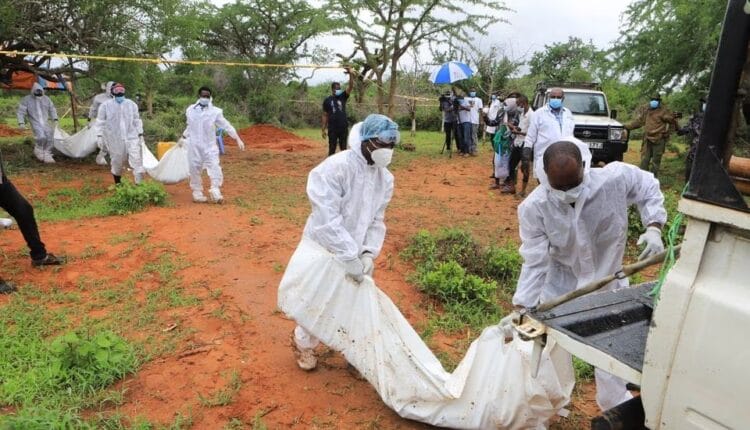By Antynet Ford
The Kenyan authorities are today set to release the bodies of several people linked to a doomsday starvation cult of Shakahola in a case that shocked the country and the world.
This is the first set of remains being handed over to their families after nearly a year of painstaking work to identify them using DNA.
Hundreds of bodies, including those of children, have been exhumed from shallow mass graves discovered in April last year in a remote wilderness inland from the Indian Ocean town of Malindi.
Self-professed pastor Paul Nthenge Mackenzie is alleged to have incited his followers to starve to death to “meet Jesus” in what has been dubbed the “Shakahola forest massacre”.
429 bodies exhumed between April and October last year have been positively identified through DNA profiling and are due to be released to families for burial.
While starvation caused many deaths, some of the bodies, including children, showed signs of death by asphyxiation, strangulation, or bludgeoning, according to government autopsies.
High school teacher Francis Wanje, whose family lost eight members in the tragedy, said they had identified four and will hold a funeral for them next month.
The disappearance of his two grandchildren had initially led investigators into the vast forest and the discovery of the mass graves.
“We thought the government could help us with the burial but we have been left to organize everything ourselves. Paying for four funerals is not an easy thing,” He said.
A homicide officer from the Directorate of Criminal Investigations told AFP it was up to families to make their burial arrangements.
Families have had to endure a painful wait for the bodies after the DNA profiling was delayed by a lack of reagents and equipment.
The Kenya National Commission on Human Rights (KNCHR), a state-backed body, last week deplored the slow process and accused authorities of withholding the results on grounds of security.
“This is not only delayed justice but also violates their cultural rights under Article 44 of the Constitution to bury their relatives in a culturally acceptable and dignified manner,” KNCHR said in a report.
“People are anxious and need closure on the matter.”


